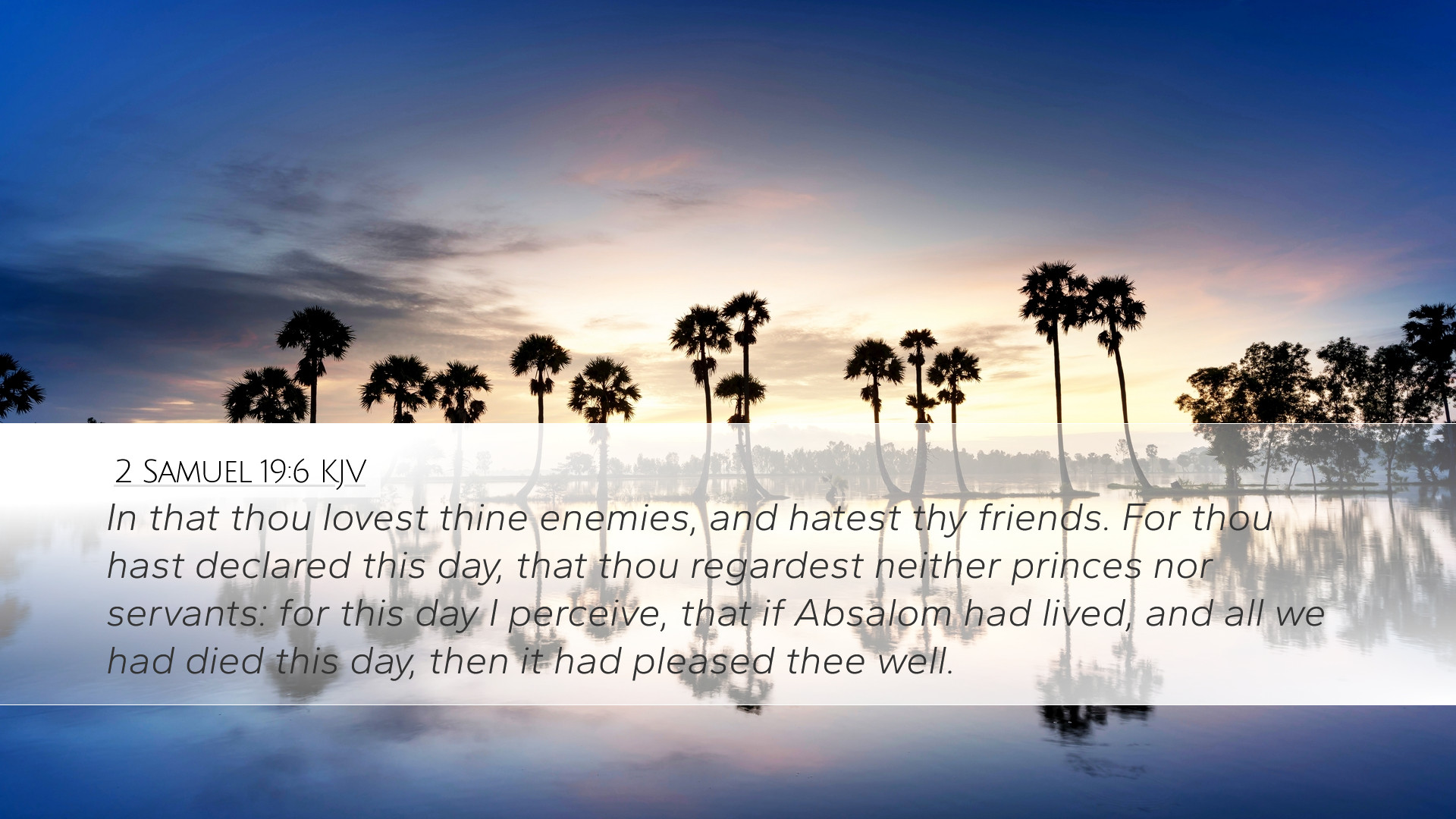Bible Commentary on 2 Samuel 19:6
Verse Reference: 2 Samuel 19:6 - "Because you love those who hate you and hate those who love you. For you have made it clear today that you would rather have your enemies than your friends. For you have shown today that you care more about your enemies than your friends." (ESV)
Introduction
This verse represents a significant moment in the narrative of David’s reign, where relational dynamics dramatically unfold. It comes in the context of Absalom's rebellion and the confusion surrounding loyalty among the people of Israel. The commentary here draws insights from respected public domain scholars and emphasizes a multifaceted understanding applicable to both historical and contemporary settings.
Contextual Analysis
Setting: Following Absalom’s coup, David faced significant challenges. Absalom was favored by many, causing divisions among the people. David’s decision-making during this tumultuous time acts as a case study for leaders concerning loyalty, fear, and conflict.
Urgency of the Situation: Albert Barnes notes that this moment reflects the urgent need for integrity and wisdom in leadership. David is seen as having concern towards both his loyal followers and those who have faltered, showcasing a leader caught in the web of relational turmoil.
Theological Insights
Matthew Henry emphasizes the moral implications of the verse, highlighting the dangers of misplaced affections and the need for discernment in relationships. The text serves as a reminder of the human tendency to gravitate towards those who align with our interests, often at the expense of those who truly represent our best interests.
- The Nature of Relationships: The verse critiques the nature of favoritism and how leaders may become swayed by those who outwardly oppose them.
- Divine Perspective: The commentary reflects on God’s perspective regarding loyalty and faithfulness, suggesting that true friendship aligns with truth and righteousness rather than mere convenience.
Key Themes
- Love and Hatred: This duality presents a stark reality of human emotions and the conflicts they engender. Adam Clarke expounds on the contrast between genuine love for one’s friends and the superficial attachment to those who oppose our values.
- Leadership Missteps: The apology David needed to offer illustrated his understanding of relationships, which reverberates into modern leadership lessons on authenticity and accountability.
Practical Applications
This passage is rich with practical implications for pastors, theologians, and spiritual leaders today. Here are a few reflections:
- Examining Allegiances: It prompts a self-examination of who we choose to build relationships with and the motivations behind those choices.
- Conviction over Convenience: Leaders are encouraged to hold firm to their values, prioritizing truth in relationships rather than the allure of popularity.
- Affirming True Allies: This verse serves as a call to identify and appreciate those who genuinely support and uphold our convictions, rather than allowing enemies to dictate our relational dynamics.
Conclusion
In conclusion, 2 Samuel 19:6 provides profound insights into the nature of leadership and relationships. Drawing from the commentaries of respected scholars, it becomes clear that this verse challenges both personal and communal dynamics. As we delve deeper into its implications, may we as students of the Word strive for a deeper understanding of God’s desire for enduring relationships built on truth, loyalty, and authentic love.


